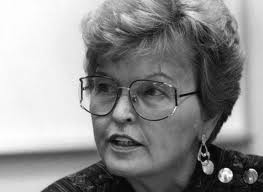Waking up to palm trees

This winter I’ve been battling a mild depression. (You, too? Seems like it’s been going around.) Somehow in the fall, my mojo started to falter. I think it all started in late September, when my partner experienced some serious setbacks in his efforts toward self-growth and serving his community. I did my best to support him through circumstances outside of his control, but I was disheartened to witness the way things unfolded and seemed to compound over time.
Meanwhile, I was struggling in my own practice. I hit a slump, where new clients were few and far between, and my energy dragged when I thought about taking the actions I would need to turn things around.
My social life slowed down, too. I had been so overwhelmed with social commitments in the summer and early fall that I told myself I needed to slow down, and take more alone time. But when I did that, it also contributed to a feeling of loneliness. I wanted more connection, more nurturing touch, more of the emotional and mental synergy that comes from connecting with others.
And, since I live in Portland, the weather got colder and rainier with each passing week. And darker. (And darker. And darker.)

I found myself struggling to enjoy the life I’ve worked so hard to craft. Each day I would hope things would get easier, or that my spark would return. Each day, those things did not happen. (Instead, I fell into a rut of junk food and zoning out on computer time.)
I know that I am not alone in this. I know that our culture (and climate, for many of us) tends to isolate and depress us. Even (perhaps especially) those of us who are idealists, who want to make each day of our lives meaningful, for ourselves, for our communities, and for the world at large. When we have lofty goals and high ideals, it can be all the more depressing when a day goes by without any “breakthroughs” or exciting progress toward the world we are all working to create. And when a week, or a month, goes by and those things remain scarce, it can become very disheartening.
I thought of writing a blog post, here, to share my struggle and to let anyone reading know that if you’re going through this, you are not alone. And that we all struggle, and we can all get through it. (And, that if you’re going through this and want to talk to a practitioner who can listen and “get it,” without trying to fix the problem or put a Pollyanna-ish life-coach spin on the situation, that I am, as always, Happy to Listen. 🙂 )
But even that seemed a bit too much of a downer for a blog post on a site called Dream Into Change. I wanted to offer some glimmer of hope. But I needed to find it for myself, first.
I had hoped, this winter, to spend a few days in San Diego, which I have done each winter for the past three years. I had intended for it to become an annual tradition, and even to increase to twice per winter or more at some point. I love that hit of sunshine and warmth—and the magic that is Balboa Park—in the middle of the darkness that blankets my otherwise beloved Portland during the cold months.

But this year I was feeling short on money, which only added to my depression. I didn’t think I could justify the trip. And, for that matter, my energy was so low it was even hard to get excited about the prospect of it.
One day, about a week ago, though, I read something online about San Diego, and I felt a pang of wistfulness. I missed that place! Maybe I could just do a web search for flights, and see what it might cost. Couldn’t hurt to look, right?
One thing I am discovering about myself is that once I get the idea of a trip into my head, it is very hard to walk away from it. When I search online and find options that are too expensive and/or inconvenient for me, rather than giving up, I am spurred to think more creatively, to see if there might be a way I could make it work.
In this situation, I discovered that the inexpensive direct flight I had become accustomed to taking had been discontinued. I thought about taking the train, since I vastly prefer it to flying anyway, but dismissed the idea because I didn’t have much time to take for the trip, and the round-trip cost would be prohibitive.
But San Diego had gotten under my skin. I was not willing to give up, once I had decided I wanted to go. I kept looking. I finally realized that I could use some of my carefully saved Amtrak mileage points to take a first-class ride—sleeper compartment and all—down south, and then catch a one-way flight back for only $100. Yes. This would work!! I searched Airbnb, and found an affordable house in the exact area I like to stay, just north of my cherished park. Everything was coming together! Within a couple of days, I had booked the whole trip.
And as I type, I’m sitting in the Amtrak Coast Starlight Sightseer Lounge car, just south of San Jose, looking out the spacious windows at sunshine and Spanish-style architecture. When I awoke this morning, I peered out the window of my berth and saw palm trees.
And I am thrilled to report that my mood has improved about 100%. I look forward to enjoying three days in San Diego, catching up with friends, hitting my favorite vegan restaurants, enjoying some contemplation in the beautiful cactus garden, and taking a break from the bleak. Getting my mojo back!

I would love to hear from any of you, if you have favorite spots to visit, or a spur-of-the-moment trip that lifted your mood, or another “trick” besides travel that snapped you out of a funk… or even just a shared lament if you’re finding yourself in a dark place at the moment.














